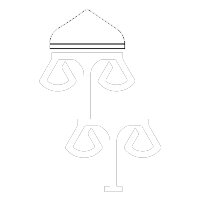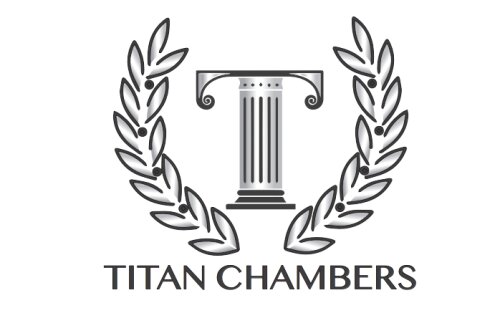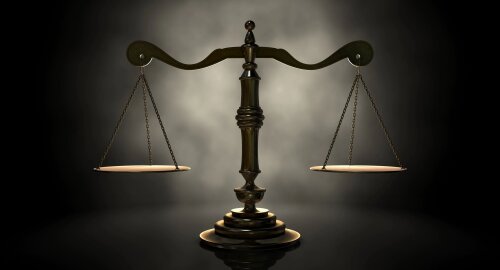Best Commercial Litigation Lawyers in Trinidad and Tobago
Share your needs with us, get contacted by law firms.
Free. Takes 2 min.
Or refine your search by selecting a city:
List of the best lawyers in Trinidad and Tobago
About Commercial Litigation Law in Trinidad and Tobago
Commercial litigation in Trinidad and Tobago refers to the legal process through which disputes arising from business transactions, contracts, partnerships, companies, and other commercial entities are resolved in the courts. The primary aim is to enforce or defend legal rights within the context of business. Cases may range from breach of contract to shareholder disputes, intellectual property infringement, insolvency issues, and other business-to-business disagreements. The legal framework is largely influenced by English common law and local statutes, with specialized rules developed to address commercial matters efficiently within Trinidad and Tobago’s legal system.
Why You May Need a Lawyer
Many business-related disputes require the expertise of a commercial litigation lawyer. Common scenarios where legal advice or representation may be necessary include:
- Disputes over contracts, such as unpaid invoices, delivery of goods or services, or breaches of warranty.
- Partnership and shareholder disagreements involving management, finances, or ownership rights.
- Matters of business dissolution, company winding-up, or insolvency.
- Allegations of fraud, misrepresentation, or business torts.
- Intellectual property conflicts, such as copyright, trademarks, or trade secrets.
- Debt recovery actions or defending against claims from creditors.
- Disputes with government regulatory bodies concerning licenses or compliance issues.
A lawyer’s experience can help protect your interests, offer practical solutions, and navigate complex court procedures.
Local Laws Overview
Commercial litigation in Trinidad and Tobago is governed by several key laws and court rules. Some of the most relevant legal instruments include:
- Companies Act: Governs the formation, operation, and disputes involving companies.
- Contract Law: Based on principles from both statutes and common law, addressing enforceability, breach, and remedies.
- Civil Proceedings Rules (CPR) 1998: Provides the procedure for managing litigation and encourages quick, fair resolutions.
- Insolvency Legislation: Sets out procedures for insolvency, restructuring, and creditor claims.
- Intellectual Property Laws: Protect rights in creative works and inventions; disputes are resolved through civil courts.
The High Court’s Civil Division often hears commercial cases, and specialized Commercial Lists exist for complex business disputes. Alternative dispute resolution methods, like mediation, are encouraged by the courts to resolve issues without lengthy trials.
Frequently Asked Questions
What is commercial litigation?
Commercial litigation is the process of resolving business-related disputes through the legal system, which often involves going to court but can also include negotiation, mediation, or arbitration.
Do I always have to go to court to resolve a commercial dispute?
No, many commercial disputes can be settled through negotiation or alternative dispute resolution methods, such as mediation or arbitration. The courts may encourage parties to attempt settlement before proceeding to trial.
How long does commercial litigation take in Trinidad and Tobago?
The duration of commercial litigation varies widely, from a few months for straightforward cases to several years for complex disputes. Factors affecting the timeline include the complexity of the case, the number of parties involved, and the court's schedule.
What are the costs involved in commercial litigation?
Costs include lawyers’ fees, court filing fees, expert witness fees, and sometimes costs awarded by the court if you lose the case. It is important to discuss fee arrangements with your lawyer at the onset.
Can I recover my legal costs if I win?
Often, the court may order the losing party to pay the legal costs of the successful party, but this is not guaranteed and may not cover all your expenses. Each case is assessed individually based on the court’s discretion.
What should I bring to my first meeting with a commercial litigation lawyer?
You should bring all documents relevant to your dispute-contracts, invoices, correspondence, financial statements, and any previous court filings or notices. This helps the lawyer assess your case accurately.
Is there a time limit for starting a commercial lawsuit?
Yes, time limits known as limitation periods apply. These vary depending on the nature of the claim but are typically four years for breach of contract claims. It is important to act quickly to avoid losing your right to sue.
Can a company be sued or sue others in Trinidad and Tobago?
Yes, companies have legal standing and can both initiate lawsuits and be named as defendants in litigation.
What happens if a court decision is not complied with?
If a party does not comply with a court order, enforcement actions can be taken. These may include seizure of assets, garnishment of accounts, or other remedies ordered by the court.
Do foreign judgments have any effect in Trinidad and Tobago?
Foreign commercial judgments can sometimes be recognized and enforced in Trinidad and Tobago, usually through a legal process known as registration of foreign judgments, provided certain requirements are met.
Additional Resources
If you need further information or assistance, the following resources and organizations can be helpful:
- Judiciary of Trinidad and Tobago: Offers information on court procedures and the commercial court system.
- Law Association of Trinidad and Tobago: Can help you find qualified commercial litigation attorneys.
- Ministry of the Attorney General and Legal Affairs: Provides updates on laws, regulations, and business compliance requirements.
- Chamber of Commerce: Offers guidance on business practices and dispute resolution services.
- Alternative Dispute Resolution Centres: Provide mediation and arbitration services for commercial disputes.
Next Steps
If you are involved in a commercial dispute or anticipate legal action, take the following steps:
- Gather and organize all relevant documents regarding your commercial issue.
- Consult a qualified commercial litigation lawyer as soon as possible to assess your options and protect your interests.
- Be prepared to discuss settlement or alternative dispute resolution options if appropriate.
- Familiarize yourself with the litigation process and local commercial laws to better understand your rights and obligations.
- Monitor all correspondence and deadlines, especially legal notices from other parties or the courts.
Seeking timely legal advice is crucial to safeguard your business interests and obtain fair resolution of your commercial disputes in Trinidad and Tobago.
Lawzana helps you find the best lawyers and law firms in Trinidad and Tobago through a curated and pre-screened list of qualified legal professionals. Our platform offers rankings and detailed profiles of attorneys and law firms, allowing you to compare based on practice areas, including Commercial Litigation, experience, and client feedback.
Each profile includes a description of the firm's areas of practice, client reviews, team members and partners, year of establishment, spoken languages, office locations, contact information, social media presence, and any published articles or resources. Most firms on our platform speak English and are experienced in both local and international legal matters.
Get a quote from top-rated law firms in Trinidad and Tobago — quickly, securely, and without unnecessary hassle.
Disclaimer:
The information provided on this page is for general informational purposes only and does not constitute legal advice. While we strive to ensure the accuracy and relevance of the content, legal information may change over time, and interpretations of the law can vary. You should always consult with a qualified legal professional for advice specific to your situation.
We disclaim all liability for actions taken or not taken based on the content of this page. If you believe any information is incorrect or outdated, please contact us, and we will review and update it where appropriate.
Browse commercial litigation law firms by city in Trinidad and Tobago
Refine your search by selecting a city.













